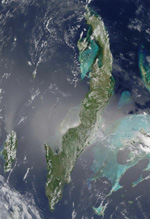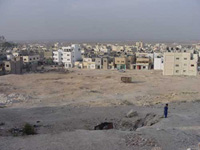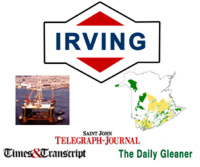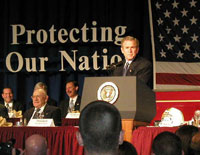DominionSections
Browse Articles
- IndependentMedia.ca
- MostlyWater.org
- Seven Oaks
- BASICS Newsletter
- Siafu
- Briarpatch Magazine
- The Leveller
- Groundwire
- Redwire Magazine
- Canadian Dimension
- CKDU News Collective
- Common Ground
- Shunpiking Magazine
- The Real News
- Our Times
- À babord !
- Blackfly Magazine
- Guerilla News Network
- The Other Side
- The Sunday Independent
- Vive le Canada
- Elements
- ACTivist Magazine
- The Tyee
- TML Daily
- New Socialist
- Relay (Socialist Project)
- Socialist Worker
- Socialist Action
- Rabble.ca
- Straight Goods
- Alternatives Journal
- This Magazine
- Dialogue Magazine
- Orato
- Rebel Youth
- NB Media Co-op
Radio
Archive - 2003
December 22nd
Understanding Cuba

- Cuba: A revolution in motion
by Isaac Saney
Fernwood Books 2003
Aside from the cigars and music, these are a few of the well-worn images of Cuba that Isaac Saney, a history professor at Dalhousie, would like you to reconsider.
Revolution and Misinformation
Barn-Raising on Air: the Prometheus Radio Project

Democracy and Fascism
 Myth, Propaganda and Disaster in Nazi Germany and Contemporary America: A Drama in 30 Scenes made headlines because each of the major theatres in Sydney failed to pick it up for 2004, even though it completed successful runs at both The Playbox Theatre in Melbourne and The State Theatre Company in Adelaide.
Myth, Propaganda and Disaster in Nazi Germany and Contemporary America: A Drama in 30 Scenes made headlines because each of the major theatres in Sydney failed to pick it up for 2004, even though it completed successful runs at both The Playbox Theatre in Melbourne and The State Theatre Company in Adelaide.Myth, Propaganda and Disaster provokes controversy in Australia
Proffessor Undressor
Many of today's most acclaimed electronica albums are recorded in the cramped bedrooms of computer-literate music nerds. Meanwhile journalists have invented the curious genre of "laptop music" to describe the trend.
Sumi-E Experiment (2003)
Mustard Gas and Seismic Blasts
 The threat of chemical dumps in Atlantic waters
The threat of chemical dumps in Atlantic watersThe coastal waters of Atlantic Canada have been polluted with a legacy of chemical, biological and nuclear weaponry. The primary culprits include the Canadian, American and British militaries, which have obsessed over our safety from alleged weapons of mass destruction in Iraq, while the communities and eco-systems of the Atlantic region have been under attack from the very same weapons of mass destruction since the 1940's. Now, with corporations being given permission to do seismic testing in Atlantic waters, the impact of these dumpsites may be compounded.
The threat of chemical dumps in Atlantic waters
December 1st
Israelis Criticizing Israel
 Public debate about Israel tends to be framed in terms of Israel as a unified country and its foreign opponents, anti-Zionist, anti-Semitic and otherwise. Widely ignored are the Israeli intellectuals and leaders who are strongly opposed to their country's actions, and the accounts that inspire their strong opposition.
Public debate about Israel tends to be framed in terms of Israel as a unified country and its foreign opponents, anti-Zionist, anti-Semitic and otherwise. Widely ignored are the Israeli intellectuals and leaders who are strongly opposed to their country's actions, and the accounts that inspire their strong opposition.
Independent Canadian journalists Jon Elmer and Valerie Zink are currently reporting from the West Bank and Gaza. The following is a series of excerpts from interviews they have conducted with diverse critical voices within Israel. The full interviews and other coverage can be read on their web site, FromOccupiedPalestine.org.
The occupation of Palestine from the inside, out
Interview: Guatemala After the Elections

From Margin to Main Character
 Deafening brings disability to the centre of mainstream fiction
Deafening brings disability to the centre of mainstream fictionI always get suspicious when in coffee shops, on buses, trains, and coffee tables, or peering out of purses, I see the same book. It seems that everyone except me is part of the same book club, and they've all picked up the assigned reading for the month. Not too long ago, this novel was The Life of Pi, and the ubiquity of this brightly coloured, incessantly discussed novel made me want to avoid it, for the sole reason that nobody else seemed to.
Deafening brings disability to the centre of mainstream fiction
Growth at Any Cost
 "NAFTA on steroids" a site for protest and paramilitary-style police action
"NAFTA on steroids" a site for protest and paramilitary-style police actionOn November 20th, behind five ranks of riot police, a 10 foot high reinforced fence, water cannons, and light armoured vehicles, ministers representing thirty-four countries agreed to a "lite" version of the Free Trade Agreement of the Americas (FTAA).
“NAFTA on steroids” a site for protest and paramilitary-style police action
November 10th
Privilege and Responsibility
Freedom of the Press is for Those Who Own One
 The Irving Media Monopoly in New Brunswick
The Irving Media Monopoly in New BrunswickLiving in New Brunswick where all of the English language daily papers are owned by one company means that there is very little variety in the type of news that is available to New Brunswick readers. We face classic problems of monopoly media ownership in which homogeneity and a narrow range of opinion are common features of the news media.
The Irving Media Monopoly in New Brunswick
Journalists Question Media Ownership in Canada
Harvest Goon
 Fatal Harvest: The Tragedy of Industrial Agriculture: Review
Fatal Harvest: The Tragedy of Industrial Agriculture: ReviewOur connection to the environment is perhaps most apparent when we sit down at the dinner table to eat a meal. That "we eat our daily bread without being conscious of the massive loss of topsoil, diversity and farm communities involved in its production" testifies to North American's disconnection from the land that sustains us. It is this disconnection that is allowing corporations to hide the very real and terrible impacts of the industrialization of our food supply, and it is this disconnection that Fatal Harvest: The Tragedy of Industrial Agriculture addresses.
Fatal Harvest: The Tragedy of Industrial Agriculture: Review
A Serious Lack
 American Visual Artists and Bush's War
American Visual Artists and Bush's WarI have to admit that the abundance of American flags bothered me when I first came to New York a few months ago. And the bumpers stickers saying 'God Bless Our Soldiers' didn't ease my mind much, either. But I breathed a sigh of relief whilst walking past the offices of the faculty of my fine arts program; on almost every door was an anti-war poster from the internet.
American Visual Artists and Imperialism
Can'tLit
"The past 20 years have shown Canadian censorship to be legal, durable, and popular. Canadian censors--whether government officials or common citizens-- have shown little confidence of the abilities of other people to think or behave responsibly after reading 'objectionable' books and magazines."
Books Recently Seized or Detained by Canada Customs
October 20th
"Anybody but Bush"
 The relationship between Canada and the US has been rocky since George W. Bush took office. Some have blamed this on a personal disconnect between Jean Chretien and President Bush. For example, in March 2003 Liberal MP David Pratt said "I don't think things will change until our leadership changes"--i.e., when Chretien leaves office. Many pundits and politicians agree with Mr. Pratt.
The relationship between Canada and the US has been rocky since George W. Bush took office. Some have blamed this on a personal disconnect between Jean Chretien and President Bush. For example, in March 2003 Liberal MP David Pratt said "I don't think things will change until our leadership changes"--i.e., when Chretien leaves office. Many pundits and politicians agree with Mr. Pratt.
But is this realistic? Exactly how does the relationship between a Canadian Prime Minister and a US President affect Canada-US relations--and how might upcoming federal elections in both countries change the situation?
Canada-US relations and the next Presidential election
Snapshot of an Occupied Land
Mail Order Tielli: Infinite Joy from a Subscriber's Perspective
 It was a chance I was happily willing to take. Apparently, so the story goes, Martin Tielli's close friends and acquaintances assured him that one cannot simply unload four albums of music on the listening public in one skull-cracking whump. Thus, it was decided to bleed out this music one record at a time. To help finance the project up front, subscriptions were sold; each subscriber would receive four albums over the course of one year. The project would be named Tielli 2003: a fitting tag for what looked to be an epic undertaking.
It was a chance I was happily willing to take. Apparently, so the story goes, Martin Tielli's close friends and acquaintances assured him that one cannot simply unload four albums of music on the listening public in one skull-cracking whump. Thus, it was decided to bleed out this music one record at a time. To help finance the project up front, subscriptions were sold; each subscriber would receive four albums over the course of one year. The project would be named Tielli 2003: a fitting tag for what looked to be an epic undertaking. Cheam People Shut Down Railway and Halt Logging
 At about 4 pm on October 2nd two trucks pulled to a halt while straddling the railway tracks that bisect the Cheam Reserve. A small crowd, including members of the Cheam Nation and supporters from local communities, gathered around the trucks forming a human blockade against the trains. Earlier that day, elder and former Chief June Quipp had warned Canadian National Railways that trans-Canadian train travel would be halted, and that she was good on her word.
At about 4 pm on October 2nd two trucks pulled to a halt while straddling the railway tracks that bisect the Cheam Reserve. A small crowd, including members of the Cheam Nation and supporters from local communities, gathered around the trucks forming a human blockade against the trains. Earlier that day, elder and former Chief June Quipp had warned Canadian National Railways that trans-Canadian train travel would be halted, and that she was good on her word. A saga of resistance
Archived Site
The Dominion is a monthly paper published by an incipient network of independent journalists in Canada. It aims to provide accurate, critical coverage that is accountable to its readers and the subjects it tackles. Taking its name from Canada's official status as both a colony and a colonial force, the Dominion examines politics, culture and daily life with a view to understanding the exercise of power.


